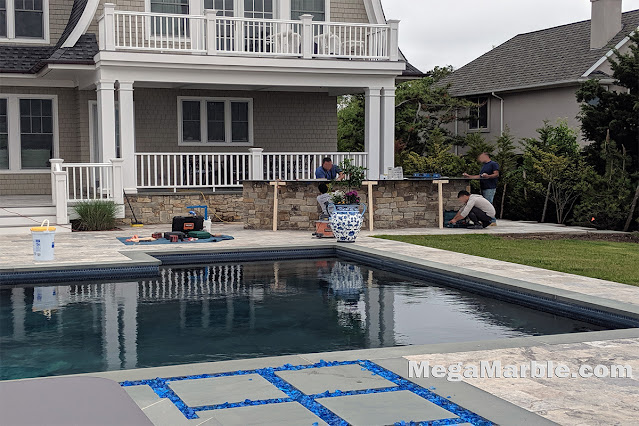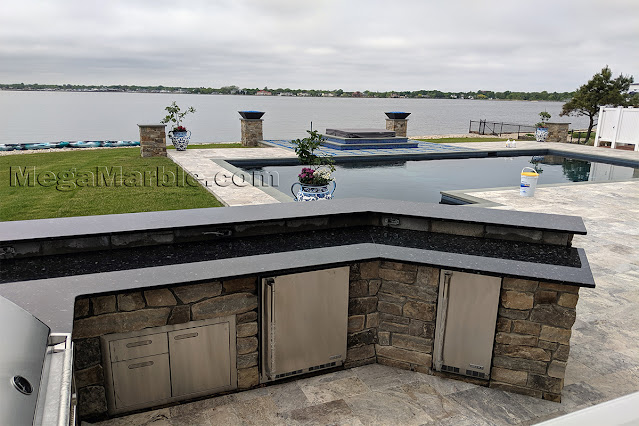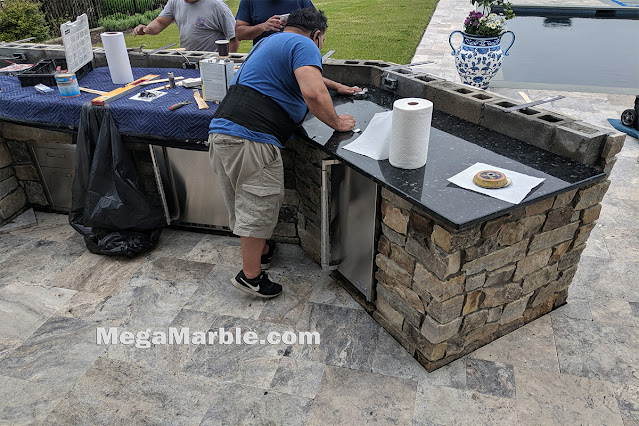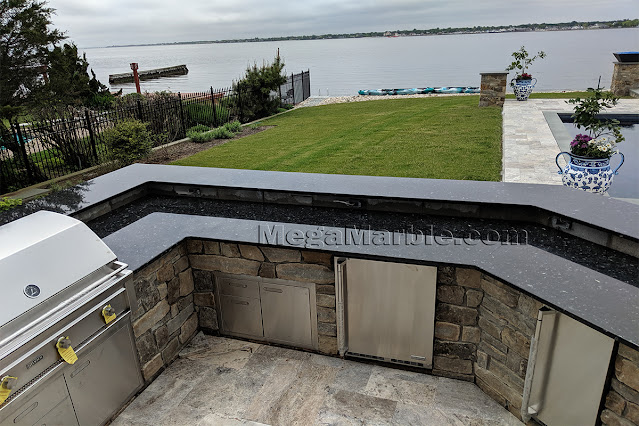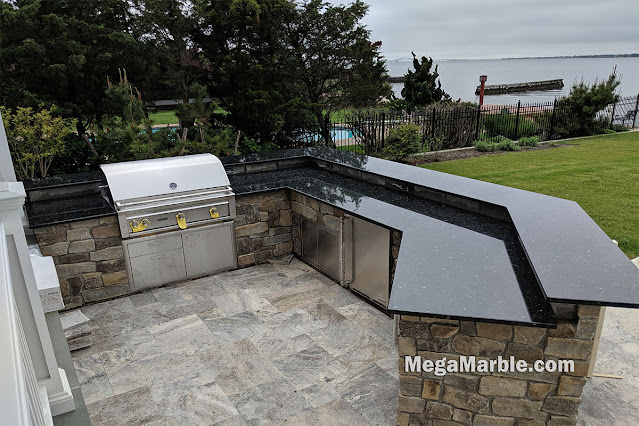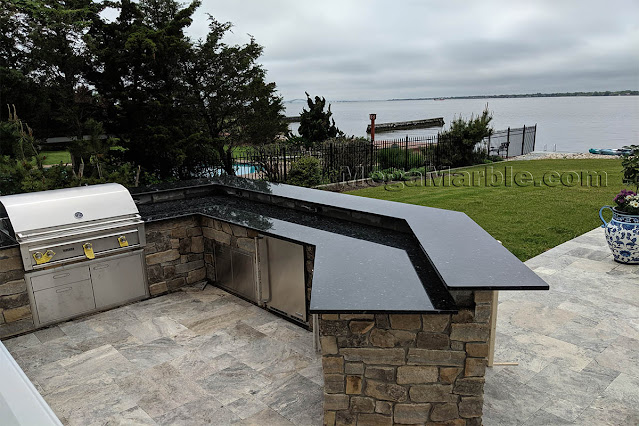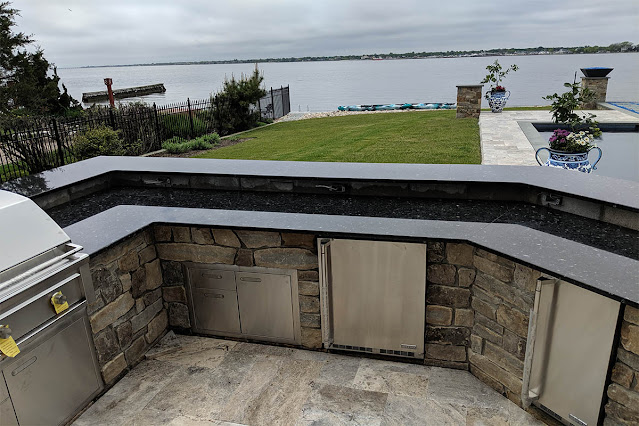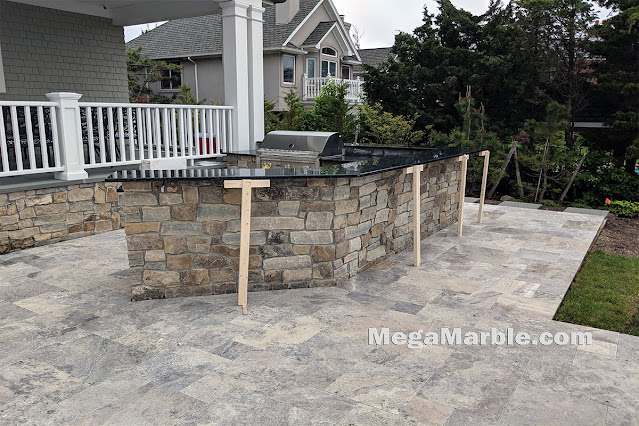
Outdoor Kitchen Countertops BBQ
Having an outdoor kitchen is one of the most prominent ways of upgrading the outdoor kitchen, but before you order your favorite stone, there are a few things you need to know.
Unlike stone for internal kitchens, stone for outdoor kitchens must first and foremost meet a number of requirements that otherwise, the stone will not hold up optimally and your investment may go down the drain.
What to consider when choosing an outdoor kitchen?
We all understand that there is a huge difference in the requirements and conditions that a stone in a foreign kitchen has to meet in relation to a stone in a regular kitchen. Here are the main points that everyone should know before making a decision on the type of stone.
The strength of the stone
The courtyard is different from the home environment in a variety of aspects, one of which is a variety of hazards in the form of various objects that can damage the stone and make it vulnerable.
This is why in stone for outdoor kitchen, you have to choose especially strong material so that even if it gets hit or two, it will have no effect – both in terms of scratches and in terms of cracks and fractures.
This point is especially important since scratches or cracks (not to mention fractures), may impair our experience of use.
Which stone is most suitable in terms of strength?
There are several types of stone that can withstand the task very well.
Granite stone – Score 10 out of 10
Onyx stone – Score 3 out of 10. Expensive but not useful in outdoor kitchens.
Quartz stone – Score 7 of 10.
Pore surface
When it comes to having an outdoor kitchen stone, the surface pore rate is a very important measure. The reason for this is that the more porous the surface, the more prone it is to absorb stains, and in the external environment, the factors that can soothe the stone are much greater in relation to stone in the home kitchen.
You have to remember that the pore rate can be proactively treated and reduced by periodic smearing of various types of sealants, with the common means of using sealer but between us – do you mean to rub the stone once every three months ..? The answer to that would probably be negative.
Heat resistance
You have just finished preparing the meats on the bbq, put them in a metal pot, and placed them on the stone for a few moments. Sounds quite simple and routine but in practice, if you didn’t choose to be suitable for an outdoor kitchen, you could cause irreversible damage.
Many guides published on the site have dealt with the fact that many stone surfaces are not heat resistant – meaning that if you want to place a hot pot on them, you should use an insulated surface and not place the pot directly on the stone.
When it comes to stone in an outdoor kitchen, who has the time to invest in insulation surfaces…
To sum it up, you need a stone that will withstand extreme heat.
Weather conditions
Outdoor kitchen in the USA has to withstand changing weather conditions. In some areas, the change can be quite extreme.
In general, all types of stone reviewed in the article will deal quite well with different weather conditions so that as you have seen there are more basic things to choose stone for an outdoor kitchen.
Bottom line – which stone is best for outdoor kitchen Countertops?
The winner in our opinion is obviously a granite stone. A combination of logical costs, spectacular looks, and high durability put Granite Stone in the first place.
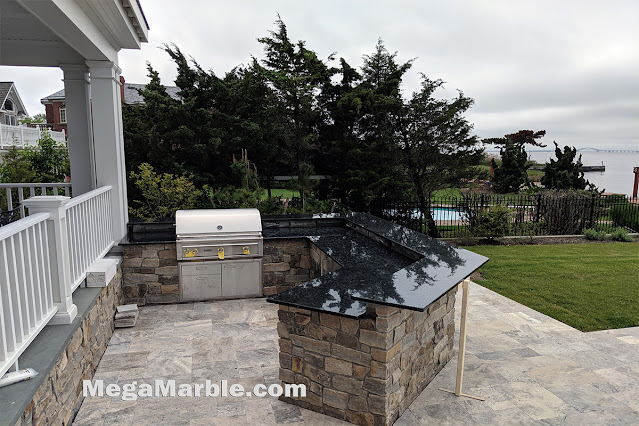
Outdoor Kitchen Countertops BBQ in Long Island New York
Outdoor Kitchen Countertops BBQ in The Hamptons NY
Outdoor Kitchen Countertops BBQ in Westchester County New York
Outdoor Kitchen Countertops BBQ in New Jersey
Outdoor Kitchen Countertops BBQ in NYC


